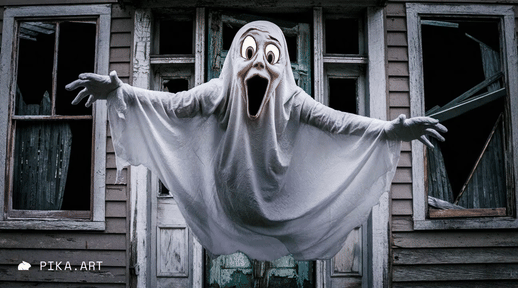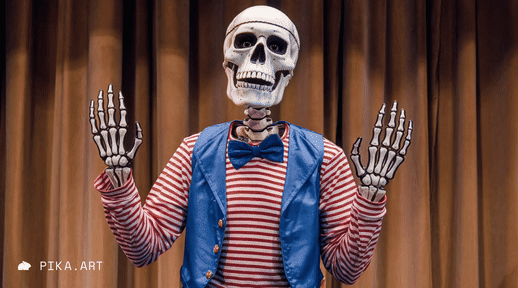Pika Labs drops new AI video effects for Halloween — including popping eyes and levitation
Now this is a fun way to send a message

Pika Labs seems to be taking a different approach to the best AI video generators than its bigger rivals like Runway and Kling. It's all about fun. When Pika 1.5 was launched, it came with a unique set of templates known as Pikaffects that made it easy to create something very cool with your own images.
This GIF-worthy and TikTok-ready approach to AI video is a unique twist in a very crowded space, and it seems to have worked as I see these effects all over social media.
Not content with the handful of launch effects, Pika Labs has now launched three new ones just in time for Halloween, including eye-popping, decapitation and levitation. The company is also promising that there are more to come in the future.
What are Pika effects?

Built on top of the Pika 1.5 AI video model, these templates can be applied to any image and then turned into a video. During my initial testing when Pikaffects were first released I inflated a typewriter and watched as it bounced across the table.
Using these effects is as simple as uploading an image and selecting an effect you're looking to generate. In a few minutes, you'll have a brilliant, share-worthy video that can also be turned into a GIF and used to illustrate a point on social media.
This isn't to say that Pika Labs doesn't have an impressive model outside of the fun effects. It can create up to 5 seconds of an initial video with similar levels of motion and realism as its competitors, but the effects give it a nice twist and a unique angle.
What's new for Halloween

Pika Labs is able to offer seasonal effects to drive attention to the platform so that users can create a campaign specifically for a time of year or even. And a company could generate effects to help promote a product or event. Think of it as a new type of merch.
Get instant access to breaking news, the hottest reviews, great deals and helpful tips.
The latest effects are specifically for Halloween and could be part of a fun project if you wanted to make your own version of Harry Potter. Especially if you turned to the levitating effect, which can make anything feel like it's hovering in the air.
Then you have the eye-popping and decapitation effects, which do more or less exactly what you'd expect from the name, although they're not quite as gruesome as they sound.
More from Tom's Guide
- Kling just added Lip Syncing — and it's a game changer for AI video
- Runway just got a big upgrade — video-to-video goes turbo
- Apple reportedly exits OpenAI investment talks amid $6.5 billion funding round — what you need to know

Ryan Morrison, a stalwart in the realm of tech journalism, possesses a sterling track record that spans over two decades, though he'd much rather let his insightful articles on AI and technology speak for him than engage in this self-aggrandising exercise. As the former AI Editor for Tom's Guide, Ryan wields his vast industry experience with a mix of scepticism and enthusiasm, unpacking the complexities of AI in a way that could almost make you forget about the impending robot takeover.
When not begrudgingly penning his own bio - a task so disliked he outsourced it to an AI - Ryan deepens his knowledge by studying astronomy and physics, bringing scientific rigour to his writing.










